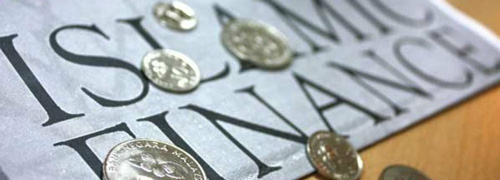Chloe Domat
The $2.4 trillion Islamic finance industry—some 1,400 institutions spread across 80 countries—faces unprecedented challenges driven by the global COVID-19 pandemic. “The present crisis is an economic crisis that will in turns affect the financial system. The magnitude will be very different from 2008 and will have to be managed differently. We have to think out of the box,” said Ayman Amin Sejiny, CEO of the Islamic Corporation for the Development of the Private Sector (ICD), a branch of the Saudi-based Islamic Development Bank Group dedicated to the private sector which covers 55 countries. Islamic banks and financial institutions emerged largely unscathed from the 2008 crisis thanks to prohibitions against speculation and risky asset classes but could see big losses soon because of the way the pandemic’s consequences are hitting the poor and small businesses especially hard.
In many Asian and African countries, Islamic finance has large market share in microfinance, small- and medium-sized enterprise (SME) and retail lending. With most government imposing social distancing rules and shop closures, “we see a big impact on SMEs, low income and minimum wage individuals while corporates have large cushions of capital and government support” according to Sejiny. Herwin Bustaman, Director and Committee chief of non-regulator affairs Permata Bank & Asbisindo in Indonesia concurred: “We started seeing a lot of applications for restructuring from lower income classes. They are the most hit by COVID 19 measures.”
According to Bustaman, the measures taken by the Indonesian central bank—reducing benchmark interest rate and offering flexibility to restructure ongoing loans—have successfully alleviated pressure on domestic liquidity. Foreign currency represents less that 15% of Indonesian Islamic banks’ portfolio. “Our biggest concern right now is asset quality which will impact profitability,” he said.
Unlike their Asian or African counterparts, Islamic banks in the Arab world depend largely on government spending which means the unprecedented drop in energy prices has serious implications for them.
“In the Gulf Cooperation Council (GCC), the asset mix is different, much of the economy is driven by government spending on infrastructure and there is more exposure to real estate. A decline in oil revenue means a cut back on these projects. This directly affects all financial institutions,” remarked Hassan Amin Jarrar CEO Bahrain Islamic Bank, the oldest bank in the country. To save jobs and businesses, regulators imposed a six-month postponement of all financial repayments for individuals, SMEs and corporates. As a consequence, Jarrar predicted financial institutions in Bahrain and many parts of region will have “virtually zero cash inflows” for the next six months. Some banks may have to take a day one loss equal to net present value of their financing portfolio.
To limit the liquidity risks, most lenders now refuse to serve new customers, which in turn has a direct impact on profitability. “It’s not a pretty picture, some might not come out of it at all” Jarrar warned. To survive, Islamic banks might have to join forces. “Once profitability deteriorates, capital and equity deteriorate. Shareholders who own multiple institutions will consider consolidation. Regulators will also encourage institutions to consolidate.”
—(Courtesy: Global Finance)









